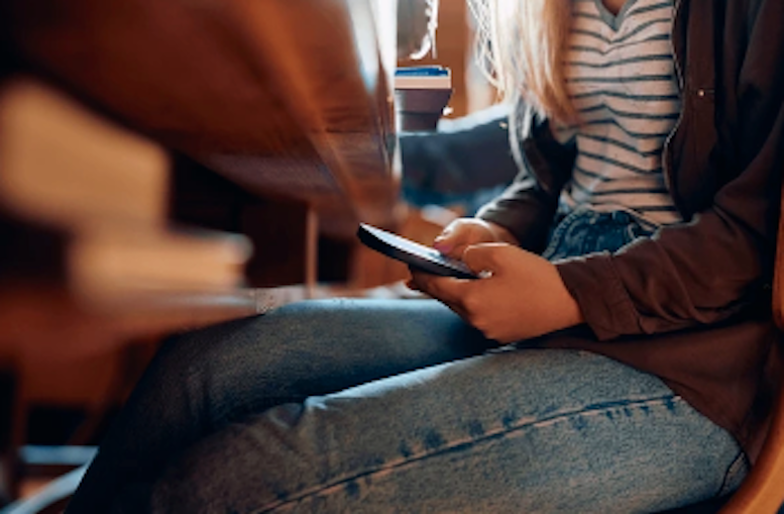The growing concerns regarding cellphone usage at K-12 schools are finally being addressed as school districts across the country have established new legislation that limits or bans mobile phones during class and/or on campus.
As of Nov. 4, eight states have passed policies that restrict or ban cellphone use in schools, according to KFF – a health policy research, polling and journalism nonprofit based in San Francisco. Several states already have begun enforcing these policies with lockable pouches that keep students’ phones safe for an extended period of time; “open lockers” in each classroom where phones remain during each class; or the banishment of phones from campus altogether.
California joined other states in this growing legislation when in August, state legislators passed the Phone-Free-School Act, which will require all state school districts, charter schools and county offices of education to develop a policy limiting the use of smartphones by July 1, 2026.
Going one step further, on Sept. 20, Gov. Gavin Newsom signed a landmark bill (Senate Bill 976), prohibiting social media platforms from providing minors addictive algorithmic feeds without parental consent. SB976 also prohibits social media platforms from sending notifications to minors during school hours, further enforcing the new legislation for phone policies at school.
“This legislation was a crucial step in our efforts to minimize distractions and foster a more conducive environment for our students to learn,” Newsom said in a statement this past summer. “It is imperative that school districts take full advantage of this law to address the growing concerns surrounding student well-being and academic performance.”
In light of the new laws to regulate cellphones, returning Pittsburg High School staff and students said they weren’t sure what changes, if any, to expect this school year after the school’s new principal, Reginald Richardson, called cellphones “weapons of mass destruction” in his introduction assembly. However, Richardson said there would be no immediate changes.
“There is no new policy. We have a current board policy and that is what is being implemented,” Richardson said. “Teachers may, upon entry based on their discretion, come in and set their policy.
“I’m assuming that every teacher is different in terms of their policy, but the general policy is you go in a class, your phone is [put] up,” he added.
While Richardson said he trusts staff and teachers to take it upon themselves to regulate the use of cellphones during class, he also wants to personally encourage students to use their cellphones appropriately. Although he has seen the new cellphone legislation circulating throughout the U.S. and California, the new principal said he doesn’t believe this type of legislation is necessary at Pittsburg High.
“It is important that human beings have an opportunity to grow their minds and elevate their thinking without having a phone as a distraction to put a cap on their creativity,” Richardson said. “I do believe there’s a balance.”
Pittsburg student Janai Rockmore said she doesn’t agree with using a pouch to lock phones away or even a ban on cellphones on campus. In fact, she said if lockable pouches were introduced to the school’s cellphone policy, she’d have trouble acclimating.
“I would not put my phone in those pouches,” the 12th grader said. “I don’t agree with the idea of banning or restricting phones at school. It’s a safety issue. What if something happens at the school and they (her family) want me to text them or something.”
Rockmore remembered an incident that occurred during her sophomore year when students experienced a bomb threat and were evacuated, however, parents weren’t “properly alerted.” She said she felt unsafe and informed her mom using her cellphone.
“Like the bombing [threat], my mom didn’t even know about it, so I called her and told her,” Rockmore said.
It’s not only Pittsburg students who feel this way. Precalculus teacher Brian Wajdowicz said he had concerns on the impact of a ban.
“Generally, I think that cellphones are terrible in a classroom. Cellphones distract students and students are glued to them and have a hard time putting them down,” Wajdowicz said. “However, I’m curious about the possibility of the state passing a law to ban them at the school level and what kind of push back parents would give, especially considering what just happened in Georgia (referring to a school shooting).
“Does that make us any safer or is communication any more vital in that kind of emergency?” Wajdowicz questioned.
School safety aside, Wajdowicz said that while the current cellphone policy is teacher driven, there needs to be more consequences for the inappropriate use of cellphones during class time. Overall, he said he feels that cellphone use is the biggest issue in the classroom these days and that while there shouldn’t be a ban, there needs to be some kind of system or policy that holds students accountable for their actions.
Julia McNeary, who teaches African American literature, U.S. history and ethnic studies at Pittsburg High, agrees. She said she is impartial to a statewide ban on phones and encourages her students to have self-control when it comes to limiting their cellphone usage during class time, rather than confiscating them.
“I could probably be a bit more strict, but I also know that sometimes you are doing things with parents or people are calling you,” McNeary said. “I try to have you all discipline yourself and gain that self-control. I give those few warnings and have you put it away.”
McNeary said that she feels that cellphones limit students’ interaction with their peers. So while she doesn’t agree with a ban, she doesn’t like the idea of cellphones being such an impactful distraction when it comes to learning.
Milan Barney is a 12th grader at Pittsburg High School in Pittsburg.



